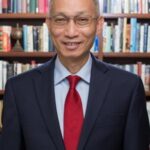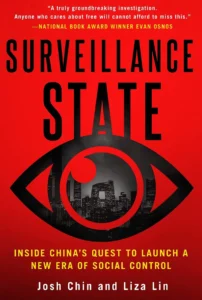How Chinese people remember and talk about their experiences during the COVID surge with one another may have real political consequences, says Minxin Pei, professor of government at Claremont McKenna College and a nonresident senior fellow of the German Marshall Fund of the United States.
At a minimum, the party’s carefully crafted can-do image will be shattered by heartbreaking tales of people dying in hospital waiting areas and bodies piling up in crematoriums. Popular demand will grow for an explanation for the lack of preparation. Fissures may emerge inside the party as officials try to shift blame and appease public anger, he writes for Nikkei Asia.

Minxin Pei
Ultimately, fiddling with the human toll of the COVID surge will be a losing proposition for Beijing. Fictitious numbers may make the Chinese government look good on paper, but they will fool no one, least of all the Chinese people, adds Pei, a board member of the National Endowment for Democracy (NED).
China’s COVID crisis is not necessarily a win for democracy, experts tell Foreign Policy.
As for whether this crisis might precipitate the removal of Xi or the CCP, the attitude of most China watchers in general has been to assume their power remains entrenched, Ben Lowsen writes for The Diplomat. Bill Bishop notes that “from the outside at least, [Xi is] in [an] extremely secure political position.” Despite this baseline assumption, Minxin Pei adds a note of caution, saying Xi “must realize that a renewed compact with the Chinese people may be essential to preserving his own ‘mandate of heaven.’” Even Bishop believes Xi has “massively exceeded” his mandate.
 Amid the recent extraordinary turn of events, other less dramatic but highly consequential stories have emerged about how the Chinese government has used the pandemic to dramatically increase its surveillance capabilities, history professor Kathleen Keller writes for The Washington Post.
Amid the recent extraordinary turn of events, other less dramatic but highly consequential stories have emerged about how the Chinese government has used the pandemic to dramatically increase its surveillance capabilities, history professor Kathleen Keller writes for The Washington Post.
China’s system of one-party, and increasingly one-man, rule is couched in Communist or nationalist jargon, but is rooted in fascist theory, says analyst Ian Buruma. The German jurist Carl Schmitt, who justified Adolf Hitler’s right to wield total power, coined the term “decisionism” to describe a system in which the validity of policies and laws is not determined by their content but by an omnipotent leader’s will. In other words, Hitler’s will was the law. Decisionism is aimed at eliminating class conflict, factional strife, and pesky political opposition. The will of the people, often expressed through a rigged plebiscite, is carried out by the leader who decides in the people’s name, he writes for Project Syndicate.
Investigative journalist Wang Zhian (above), 54, had over six million “followers” on Weibo, SWI’s Katharina Wecker reports. But on June 3, 2019, on the 30th anniversary of the brutal crackdown on China’s Tiananmen Square democracy movement, it was over. His Weibo account, as well as other channels he used at the time, were deleted by the authorities.
“(President) Xi doesn’t think the media should be a watchdog. He thinks they just need to be propaganda organs,” says Wang Zhian in the new episode of SWI’s Voices of Freedom series. Fearing for his safety and that of his family, he recently left China and moved to Japan.
The West is full of voices predicting a crisis of legitimacy for Xi Jinping, after the CCP wasted 2022 on doomed efforts to contain covid-19 and failed to prepare an orderly exit. My Chaguan explores how the party plans to avoid paying any visible price https://t.co/u7mZWmlzVN
— David Rennie 任大伟 (@DSORennie) January 6, 2023







